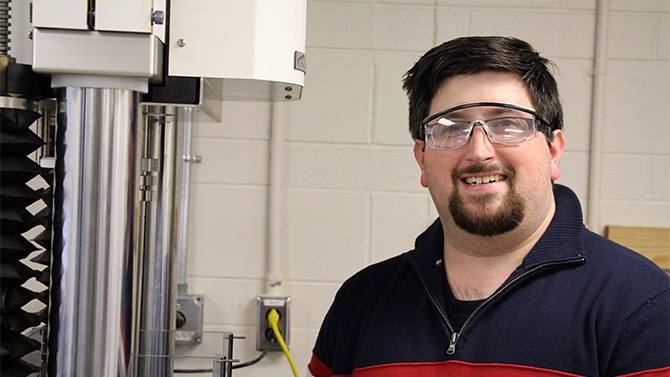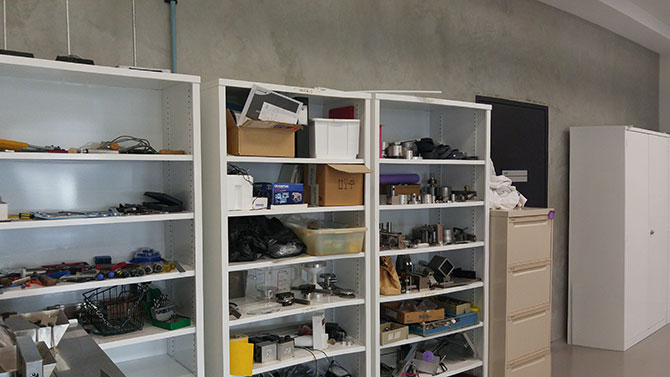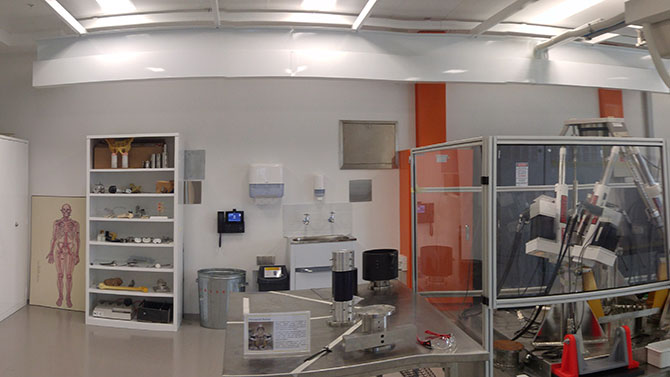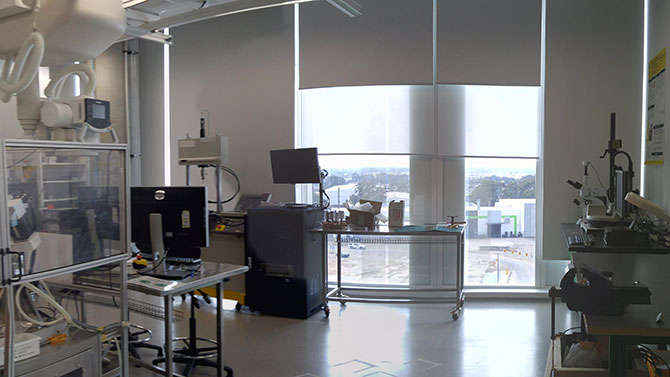


Whitaker Award deadline
January 20, 2017
Biomedical engineering student returns from international research travel
Just months after University of Delaware doctoral candidate John DeLucca returned from Australia’s Flinders University, where he completed his own Whitaker International Program experience, the Institute for International Education has announced that it will close the prestigious program’s application for the final time on Tuesday, Jan. 24.
Founded in 2006, the Whitaker Fellowship allows Ph.D. students in biomedical engineering the opportunity to travel internationally to conduct a self-designed project that will enhance their career. DeLucca, who focuses on spine biomechanics, was granted an award to spend two months at the Adelaide-based lab of John Costi, a mechanical engineer known for his innovative hexapod machine.
“Dr. Costi has equipment in his lab that is truly unique,” said DeLucca, adding that the machine operates under the same technology as a roller-coaster ride. “Imagine a Hula-Hoop. His machine can rotate whatever you put in it at what we call six degrees of freedom. You can push it, slide it in two directions, and do any number of rotations.”
In Adelaide, DeLucca used this machine to run experiments that will allow him to complete a full finite element model, a computer tool, that will simulate the complex mechanics of the spine. Other models, he said, rely on machines that solely capture compression.
“The spine and disc are much more complicated than just compression and in fact, in the clinic, people may be asked to bend in a certain way and that may cause them a lot of pain. We will now have a model that has much more advanced predictive power than what is out there at the moment. That is due, in part, to these experiments,” DeLucca said.
DeLucca said he hopes that the new finite element model developed in his thesis could be used to simulate pathology or design implants, although the potential for its use is virtually limitless.
Outside of the lab, DeLucca got to know Adelaide and Flinders’ growing community of medical researchers. “This experience was really helpful in validating my choice to pursue medical school,” he said. “I worked in a biomedical engineering lab, but because of the unique nature of Costi’s lab, I also met many surgeons who would come in to demonstrate new surgical techniques. There is a universal element to medicine that I really appreciate.”
“Working on a global collaboration advanced DeLucca’s research, as he was able to gather important mechanical data that no one in the US has the instrumentation to measure,” said Dawn Elliott, chair of UD’s Department of Biomedical Engineering and DeLucca’s adviser. “But just as importantly, DeLucca was exposed to unique perspectives, new expertise, and different cultural environments as part of this international fellowship. This enhances his current research and will impact his career in the long term.”
DeLucca encouraged fellow doctoral students in the field to consider applying for a Whitaker Program Fellowship. “The Whitaker is great because their mission puts a lot of emphasis on clinical and international collaboration,” he said. “I probably would not have had this opportunity otherwise.”
Those who are interested in applying for the fellowship’s last round of grants should do so online by Tuesday, Jan. 24, and contact Kim Bothi, associate director for science and engineering at the Institute for Global Studies, with questions.
STATE OF THE ART LABORATORY
Contact Us
Have a UDaily story idea?
Contact us at ocm@udel.edu
Members of the press
Contact us at 302-831-NEWS or visit the Media Relations website




